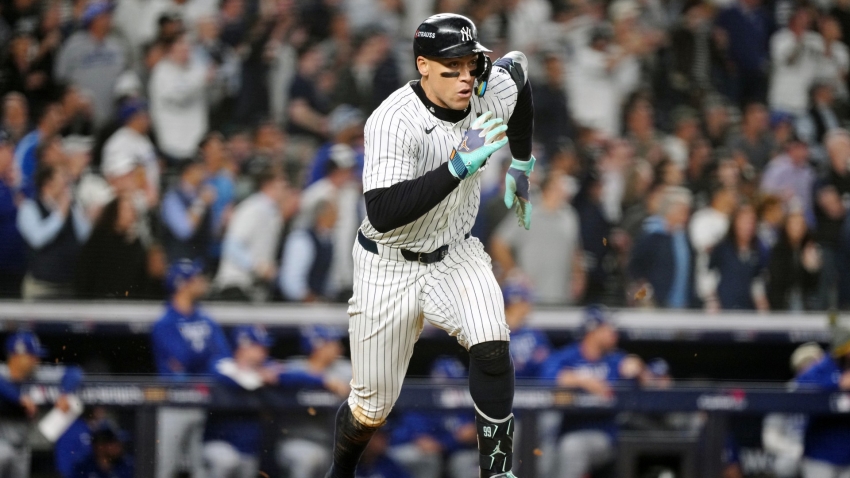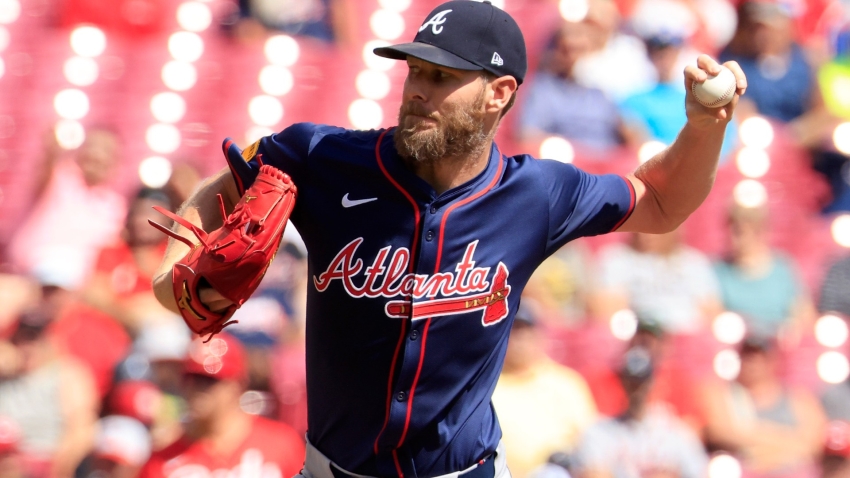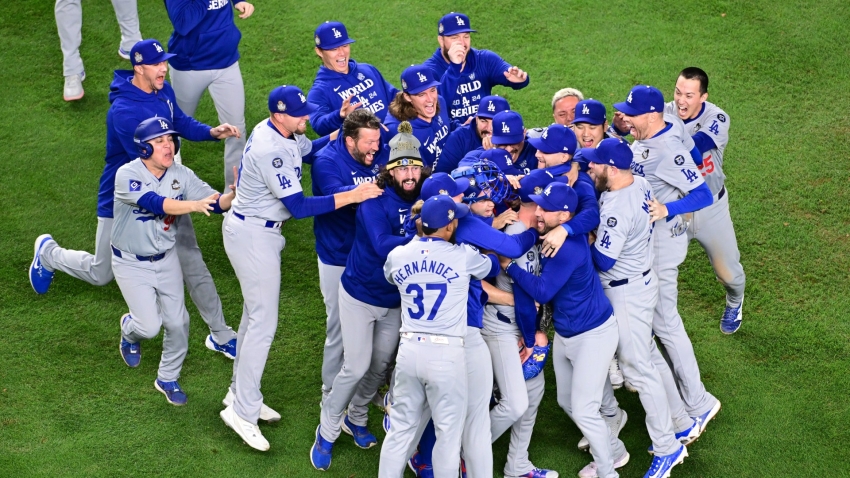Aaron Judge and Shohei Ohtani were both unanimously selected to win Most Valuable Player Awards in their respective leagues on Thursday.
Judge collected all 30 first-place votes from the Baseball Writers’ Association of America and Kansas City Royals shortstop Bobby Witt Jr. garnered all 30 second-place votes.
Yankees outfielder Juan Soto finished third with 21 third-place votes.
Ohtani was an unanimous MVP for the third time, receiving all 30 first-place votes and 420 points in voting by the BWAA. New York Mets shortstop Francisco Lindor was second with 263 points and Arizona second baseman Ketel Marte third with 229.
It is the second AL MVP award of Judge's career after he also won the award in 2022.
Judge led the major leagues with 58 homers, 144 RBIs and 133 walks while hitting .322. He also drew a league-high 133 walks and posted a spectacular 1.159 OPS.
Witt topped the big leagues with a .332 average, hitting 32 homers with 109 RBIs.
With two MVP Awards to his name, Judge is the seventh player in Yankees history to win multiple MVPs. He joins Lou Gehrig, Joe DiMaggio, Yogi Berra, Mickey Mantle, Roger Maris and Alex Rodriguez.
There was an extended stretch over the summer where Judge was on a pace to reach and possibly break his own single-season home run record (62 in 2022). The same goes for a bid at a Triple Crown.
The stretch that truly defined his season began on April 27. Judge entered play on that day in Milwaukee with a .178 batting average and .674 OPS on the season. He had only four home runs with 35 strikeouts across 27 games.
Over his next 100 games, through August 23, Judge hit .378 with 45 home runs. It was the first time in MLB history a player batted higher than .375 with 45-plus homers in a stretch of 100 games within a single season.
Ohtani was unanimously voted AL MVP in 2021 and 2023 as a two-way star for the Los Angeles Angels and finished second to Judge in 2022 voting. He didn’t pitch in 2024 following elbow surgery and signed a record $700 million, 10-year contract with the Los Angeles Dodgers last December.
Ohtani hit .310, stole 59 bases and led the NL with 54 homers and 130 RBIs exclusively as a designated hitter, becoming the first player with 50 or more homers and 50 or more stolen bases in a season. He helped the Dodgers to the World Series title, playing the final three games with a torn labrum in his left shoulder.
Ohtani is the first primary DH to win an MVP. He joins Frank Robinson for Cincinnati in 1961 and Baltimore in 1966 as the only players to win the MVP award in both leagues.
The Japanese sensation is the 12th player with three or more MVPs, joining Barry Bonds (seven) and Jimmie Foxx, Joe DiMaggio, Stan Musial, Roy Campanella, Yogi Berra, Mickey Mantle, Mike Schmidt, Alex Rodriguez, Albert Pujols and Mike Trout (three each).































